This article was co-authored by Erik Kramer, DO, MPH. Dr. Erik Kramer is a Board-Certified Primary Care Physician at the University of Colorado. With over 15 years of experience, his clinical interests include obesity and weight management, diabetes care, and preventive care, as well as embracing a holistic approach to primary care. He received his Doctorate in Osteopathic Medicine (D.O.) from the Touro University Nevada College of Osteopathic Medicine and completed his residency at Central Maine Medical Center. Dr. Kramer is a Diplomate of the American Board of Obesity Medicine.
There are 15 references cited in this article, which can be found at the bottom of the page.
This article has been viewed 10,367 times.
Gut dysbiosis is a fancy way to say that the bacteria in your digestive system are out of balance. As long as the healthy bacteria in your gut outgrow the harmful ones, then your digestive health should be fine. However, if the harmful bacteria outgrow the healthy ones, then you’ll experience problems like diarrhea, bloating, gas, abdominal pain, and heartburn. Dysbiosis is associated with many GI conditions, like irritable bowel syndrome and Crohn’s disease, though it doesn’t necessarily cause them. Luckily, the condition is treatable. If you support your healthy bacteria correctly, then your digestive system should rebalance itself.
Steps
Diet
-
1Incorporate more foods that contain probiotics.[1] Probiotics are healthy gut bacteria (and sometimes other organisms, like yeasts). If you have gut dysbiosis, then your body has too few of these bacteria. Eating probiotic-rich foods or supplements can help replace them. In general, fermented foods are high in probiotics. Some good choices are:[2]
- Sauerkraut and pickles
- Miso and kimchi
- Tempeh
- Kombucha
- Plain Greek yogurt
- A common side effect of too many probiotics is increased gas and bloating. If you experience these symptoms, then you may need to cut back on probiotic foods.
-
2Feed healthy gut bacteria with prebiotic foods. Prebiotics are food sources for the healthy bacteria in your gut. They support more growth of good bacteria, which can outweigh the harmful bacteria in your gut and improve your intestinal balance. Add more prebiotic foods like these to your diet to support healthy gut bacteria:[3]
- Vegetables like asparagus, leeks, onions, and dandelion greens
- Fruits like bananas and apples
- Oats, flaxseed, and cocoa
- Garlic
- Like with probiotics, overdoing it with prebiotics can also cause gas and bloating. Try reducing your intake if you notice these symptoms.
Advertisement -
3Eat 25-30 grams of fiber every day. Fiber helps move food and waste through your digestive system smoothly. A low-fiber diet can cause backups and knock your bacterial balance off.[4] Get at least 25-30 grams of fiber every day from your diet. Once your digestive system starts moving smoothly again, your bacteria might rebalance.[5]
- Good high-fiber foods include leafy green vegetables, beans and lentils, whole wheat bread, apples, bananas, dried fruits, and fortified cereals.
- You can also take supplements to increase your fiber intake. However, doctors recommend that the majority of your fiber comes from food rather than supplements, so it’s best to adjust your diet as well.
-
4Reduce your consumption of red meat. Generally, a high-meat diet isn’t great for your digestive health and is associated with gut dysbiosis. Red meat especially contains saturated fats and chemicals that impact your digestive and cardiovascular health. Limit your consumption to 2-3 servings per week.[6]
- You can replace your red meat servings with poultry, pork, or fish.
- If you do eat red meat, choose low-fat varieties for a healthier option.
-
5Follow a low-sugar diet to avoid feeding harmful bacteria. Added sugars are a food source for harmful gut bacteria, so eating a lot of it can make them outgrow the healthy bacteria. Monitor your sugar intake and eat as little as possible. The recommendation maximum is 25 grams per day for women and 36 per day for men. Keep your consumption below these levels.[7]
- Get in the habit of reading the nutrition labels on all the food you buy. You might be surprised how much sugar is added into some foods.
- Try to cut out sugary drinks like soda altogether. These can have double or even triple the daily recommended dosage of sugar and have no nutritional value.
- Remember that there’s a difference between natural sugars, like the ones in fruit, and added sugars like in candy. The aim is avoiding added sugars, not natural ones.
-
6
Lifestyle Changes
-
1Exercise regularly to keep your gut moving. A sedentary lifestyle can make your digestive system move slower, leading to constipation and dysbiosis. Try to get at least 30 minutes of aerobic exercise 5 days per week to keep your digestive system moving smoothly.[12]
- Aerobic exercises get your heart and breathing rate up. Running, swimming, biking, or kickboxing classes are all great aerobic exercises.
- You don’t need to work out hard to improve your digestive health. A 30-minute walk is great exercise, too.
-
2Maintain a healthy body weight. Being overweight can put more stress on your digestive system and increase your risk of dysbiosis.[13] Speak with your doctor about the ideal body weight for you. Then, design a diet and exercise regimen to reach and maintain that weight.[14]
- Other methods of treating dysbiosis, like following a healthy diet and exercising regularly, can also help you lose weight. This makes the overall treatment process easier.
-
3Reduce your stress to prevent GI discomfort. High stress is associated with numerous digestive issues, including dysbiosis. If you regularly experience periods of high stress, then this could be causing your symptoms or making them worse. Work on reducing your stress and anxiety to support your treatment regimen.[15]
- Exercises like meditation, yoga, and deep breathing can all reduce stress. Try making some time in the morning or evening for some of these relaxation activities.
- Doing things you enjoy is also a great stress-reducer. Whether you like playing video games, cooking, watching movies, or reading, make some time for enjoyable activities to help you unwind.
- If you have trouble controlling your stress, consider speaking to a professional therapist for more treatment options.
-
4Limit your alcohol intake to an average of 1-2 drinks per day. Excessive drinking can trigger dysbiosis and other associated health problems.[16] Moderate drinking is defined as 1-2 alcoholic drinks per day on average. Keep your drinking within this range to avoid digestive complications.
- If you are actively having digestive issues, then it’s best to stop drinking altogether while you heal. This can reduce your discomfort.
- If you think you might have a problem with drinking, consider speaking with your doctor, a therapist, or a substance abuse specialist.
Medical Treatments
-
1See your doctor if your digestive issues don’t improve within 1 week. If you’ve been trying to treat your condition at home for a week and don’t see any improvement, then it’s time to see your doctor. Schedule an examination to determine what’s causing the dysbiosis and how to treat it.[17]
-
2Take probiotic supplements to rebalance your gut bacteria. If you don’t get enough probiotics from your regular diet, then probiotic supplements can help. These pills contain live cultures of healthy bacteria that will then grow in your gut. Taking these supplements might help relieve your symptoms.[18]
- In general, get a supplement that contains at least 1 billion live cultures per dose. These have the best chances of working.[19]
- Not all probiotic brands are the same. Investigate any brand you're considering buying and see if it's been tested for effectiveness. If you don't know where to start, ask the pharmacist or your doctor for a recommendation.
- Ask your doctor before taking any supplements to make sure they’re right for you.
-
3Take a test to check for an infection in your GI tract. Sometimes, an underlying infection like E. coli causes dysbiosis. Between questioning you about your symptoms, giving you a physical exam, and running tests like a blood analysis, your doctor may diagnose you with an underlying infection. Follow all of their directions for treating the infection to alleviate your symptoms.[20]
- Your doctor may also order an endoscopy to look inside your digestive tract. This is a moderately invasive procedure where the doctor inserts a tube into your esophagus, but it shouldn’t cause any pain. The procedure should be finished within 30 minutes.
-
4Have a fecal transplantation for severe gut infections. Sometimes the symptoms of gut dysbiosis have a more serious underlying cause, such as an infection with the C. difficile bacterium. In these cases, fecal transplantation might be effective. This involves taking stool from a healthy donor and transplanting it into your colon. This sounds strange, but it fosters the growth of healthy bacteria that can bring your digestive system into balance. Your doctor may try this if you test positive for a C. difficile infection and your symptoms haven’t responded to any other treatments.[21]
- Fecal transplantations aren’t recommended for simple imbalances in your gut bacteria. This treatment is only used for severe or recurring C. difficile infections that don’t go away with more conservative treatments.
- This kind of infection can happen after you take certain kinds of antibiotics, which can wipe out healthy gut bacteria and allow more dangerous ones to take over.
- Generally, the procedure involves a colonoscopy for both you and the donor. The doctor will transplant the stool while you’re under anesthesia and send you home afterward. You can resume your normal activities the next day.
- You’ll usually only need one treatment, but follow your doctor’s instructions if you need additional treatments.
-
5Take all antibiotics exactly as you’re directed to. While antibiotics aren't used to treat this condition, overuse of antibiotics for a different condition can knock your gut bacteria off balance and cause dysbiosis. It’s important to follow all directions and take the antibiotics properly to prevent adverse reactions.[22]
- If you do have to take antibiotics, your doctor might recommend that you take probiotic supplements until they’re finished. This can support your body’s healthy bacteria without any problems.
- If you develop dysbiosis while taking antibiotics, don’t stop taking them without contacting your doctor. The doctor may want you to finish the course and treat the dysbiosis separately.
Expert Q&A
-
QuestionCan probiotics help with gut dysbiosis?
 Peter Gardner, MDPeter W. Gardner, MD is a board certified physician who has practiced Gastroenterology and Hepatology for over 30 years. He specializes in diseases of the digestive system and liver. Dr. Gardner earned his Bachelor’s degree from the University of North Carolina and attended Georgetown Medical School. He completed his residency in Internal Medicine and then his fellowship in Gastroenterology at the University of Connecticut. He is a previous Chief of Gastroenterology at Stamford Hospital and remains on the staff. He is also on the staff of Greenwich Hospital and New York (Columbia) Presbyterian Hospital. Dr. Gardner is an Approved Consultant in Internal Medicine and Gastroenterology with the American Board of Internal Medicine.
Peter Gardner, MDPeter W. Gardner, MD is a board certified physician who has practiced Gastroenterology and Hepatology for over 30 years. He specializes in diseases of the digestive system and liver. Dr. Gardner earned his Bachelor’s degree from the University of North Carolina and attended Georgetown Medical School. He completed his residency in Internal Medicine and then his fellowship in Gastroenterology at the University of Connecticut. He is a previous Chief of Gastroenterology at Stamford Hospital and remains on the staff. He is also on the staff of Greenwich Hospital and New York (Columbia) Presbyterian Hospital. Dr. Gardner is an Approved Consultant in Internal Medicine and Gastroenterology with the American Board of Internal Medicine.
Board Certified Gastroenterologist Probiotics might be able to help increase the bacteria in your intestines and improve your digestive problems.
Probiotics might be able to help increase the bacteria in your intestines and improve your digestive problems.
Warnings
- Always ask your doctor before taking any dietary supplements like probiotics. They will tell you whether or not the supplement is right for you.⧼thumbs_response⧽
- While you should add more probiotic and prebiotic foods to your diet, keep your diet well-balanced with other nutrients and food types. Otherwise, you could be missing key vitamins and minerals.[24]⧼thumbs_response⧽
References
- ↑ Peter Gardner, MD. Board Certified Gastroenterologist. Expert Interview. 25 August 2020.
- ↑ https://www.health.harvard.edu/staying-healthy/how-to-get-more-probiotics
- ↑ https://www.umassmed.edu/nutrition/blog/blog-posts/2019/5/the-10-best-prebiotic-foods-for-ibd/
- ↑ https://www.ncbi.nlm.nih.gov/pmc/articles/PMC6121872/
- ↑ https://www.ucsfhealth.org/education/increasing-fiber-intake
- ↑ https://www.ncbi.nlm.nih.gov/pmc/articles/PMC6121872/
- ↑ https://cdhf.ca/health-lifestyle/dysbiosis-ibs/
- ↑ https://www.ncbi.nlm.nih.gov/pmc/articles/PMC6121872/
- ↑ https://www.heart.org/en/healthy-living/healthy-eating/eat-smart/fats/saturated-fats
- ↑ Peter Gardner, MD. Board Certified Gastroenterologist. Expert Interview. 25 August 2020.
- ↑ https://www.heart.org/en/healthy-living/healthy-eating/eat-smart/fats/polyunsaturated-fats
- ↑ https://www.hopkinsmedicine.org/health/wellness-and-prevention/your-digestive-system-5-ways-to-support-gut-health
- ↑ Peter Gardner, MD. Board Certified Gastroenterologist. Expert Interview. 25 August 2020.
- ↑ https://www.hopkinsmedicine.org/health/wellness-and-prevention/your-digestive-system-5-ways-to-support-gut-health
- ↑ https://www.ncbi.nlm.nih.gov/pmc/articles/PMC7213601/
- ↑ https://www.cdc.gov/alcohol/fact-sheets/alcohol-use.htm
- ↑ https://medlineplus.gov/ency/article/003120.htm
- ↑ https://www.ncbi.nlm.nih.gov/pmc/articles/PMC6121872/
- ↑ https://health.clevelandclinic.org/how-to-pick-the-best-probiotic-for-you/
- ↑ https://cdhf.ca/health-lifestyle/dysbiosis-ibs/
- ↑ https://www.hopkinsmedicine.org/health/treatment-tests-and-therapies/fecal-transplant
- ↑ https://cdhf.ca/health-lifestyle/dysbiosis-ibs/
- ↑ https://health.clevelandclinic.org/how-to-pick-the-best-probiotic-for-you/
- ↑ https://my.clevelandclinic.org/health/articles/14598-probiotics
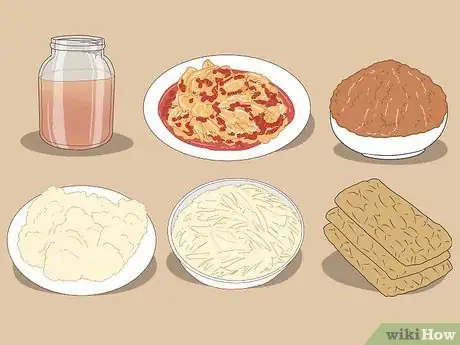



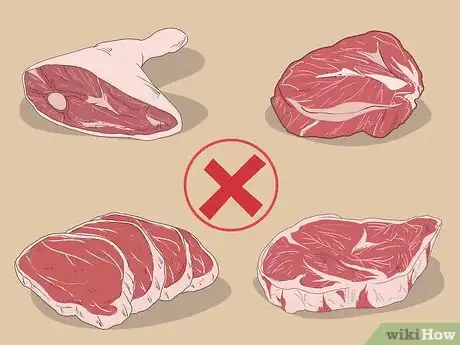
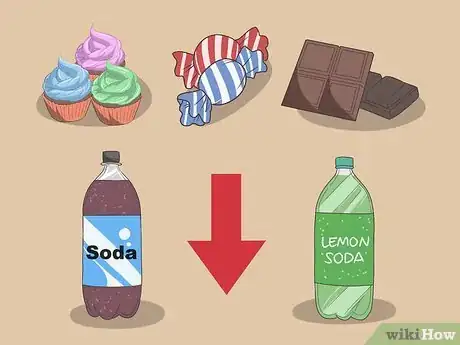
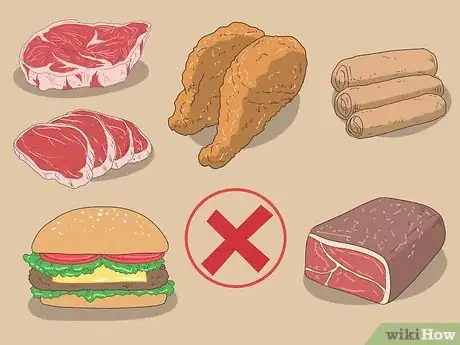




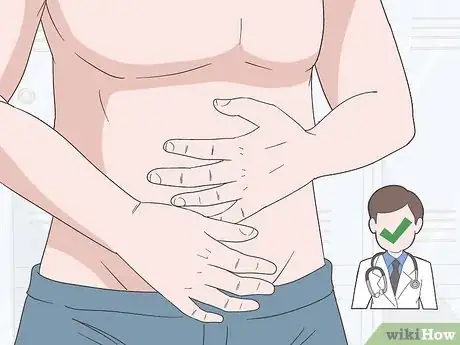
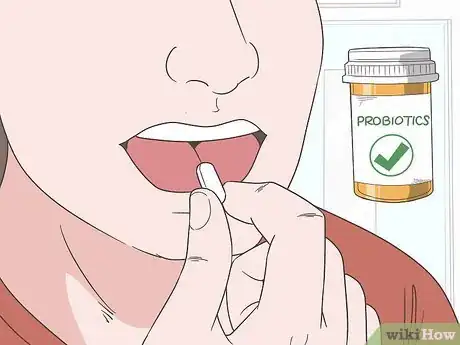
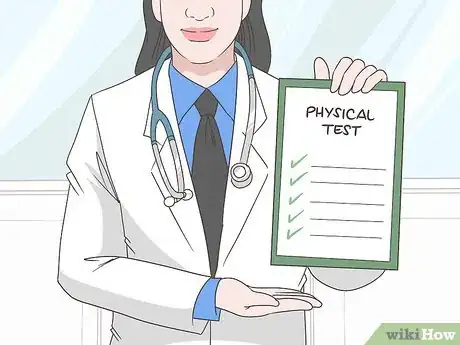
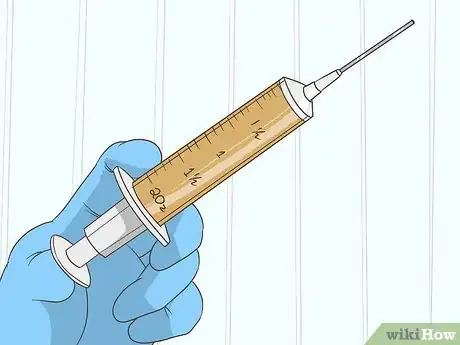
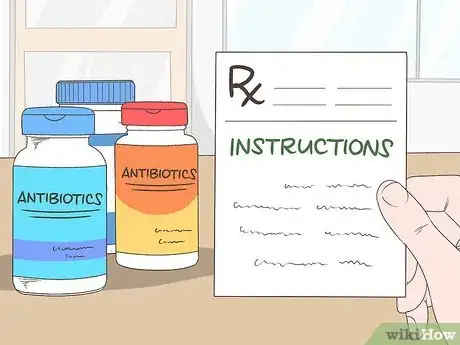
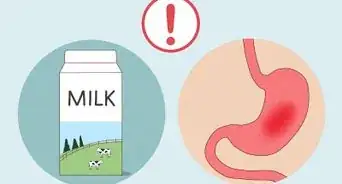
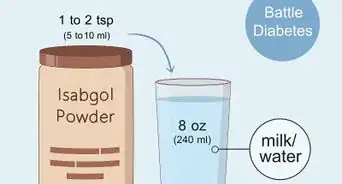


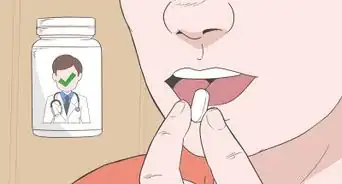








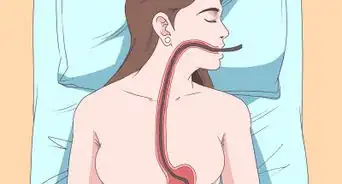







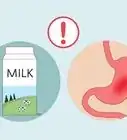
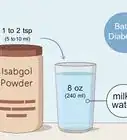

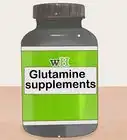



































Medical Disclaimer
The content of this article is not intended to be a substitute for professional medical advice, examination, diagnosis, or treatment. You should always contact your doctor or other qualified healthcare professional before starting, changing, or stopping any kind of health treatment.
Read More...